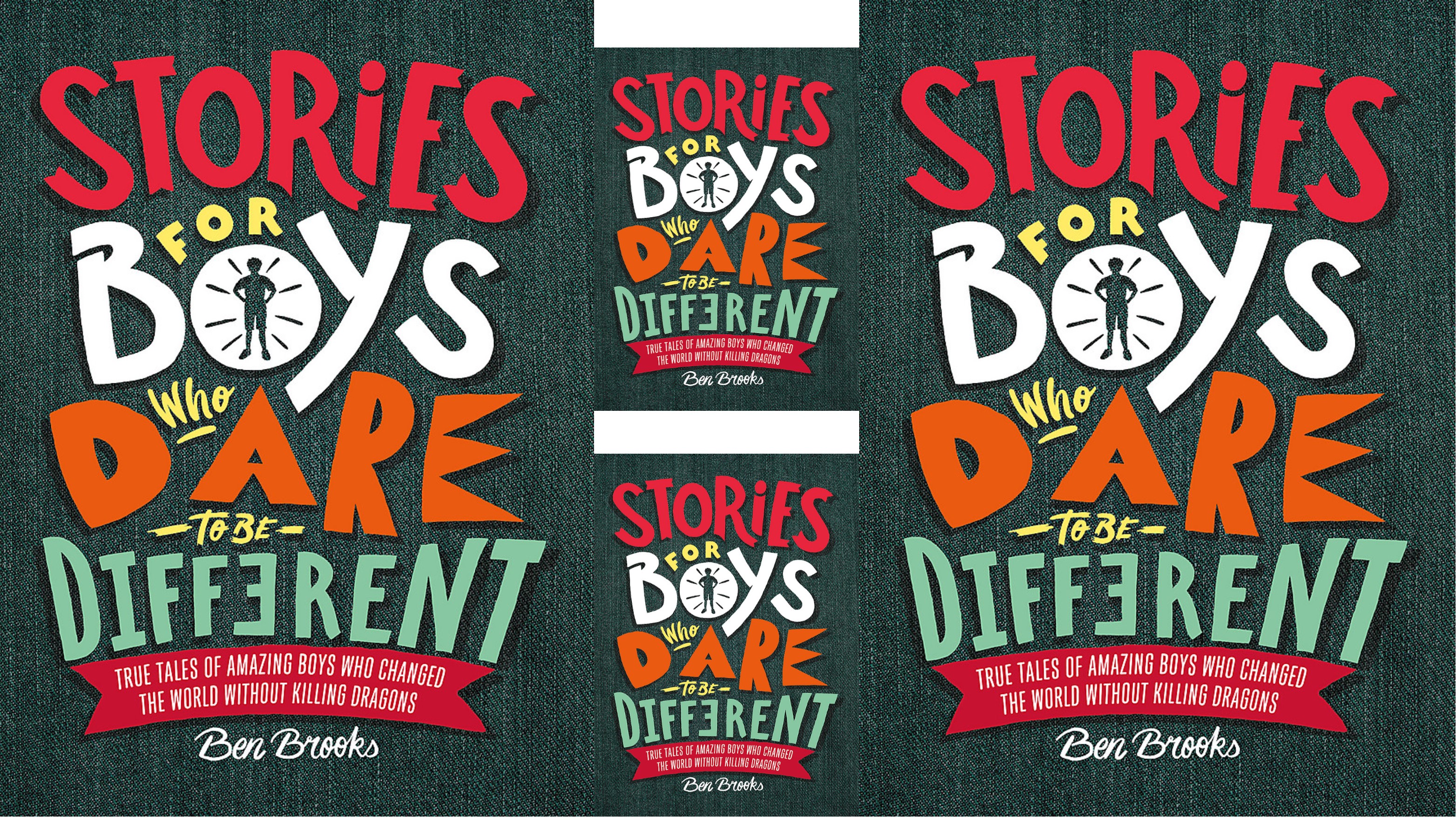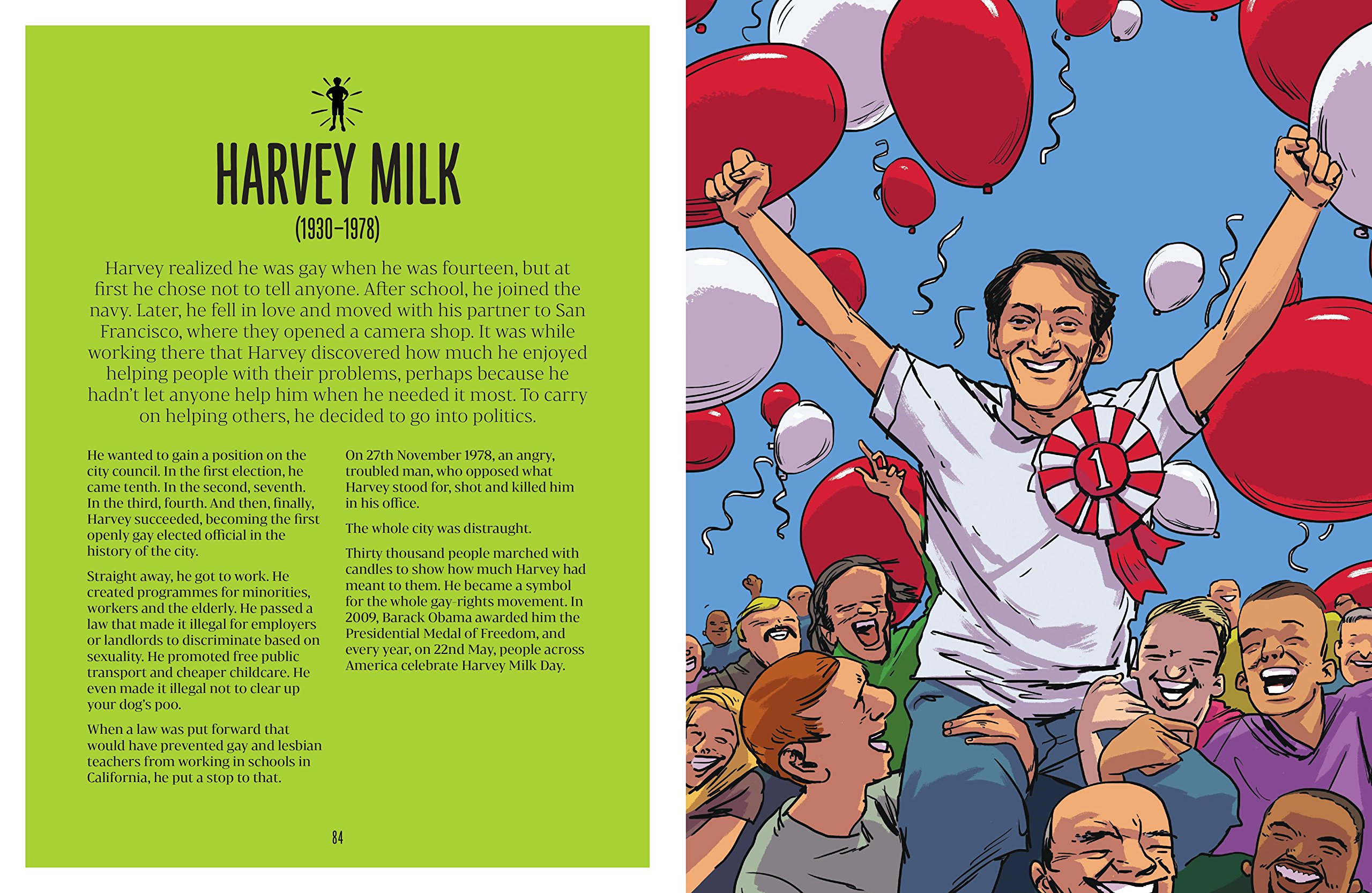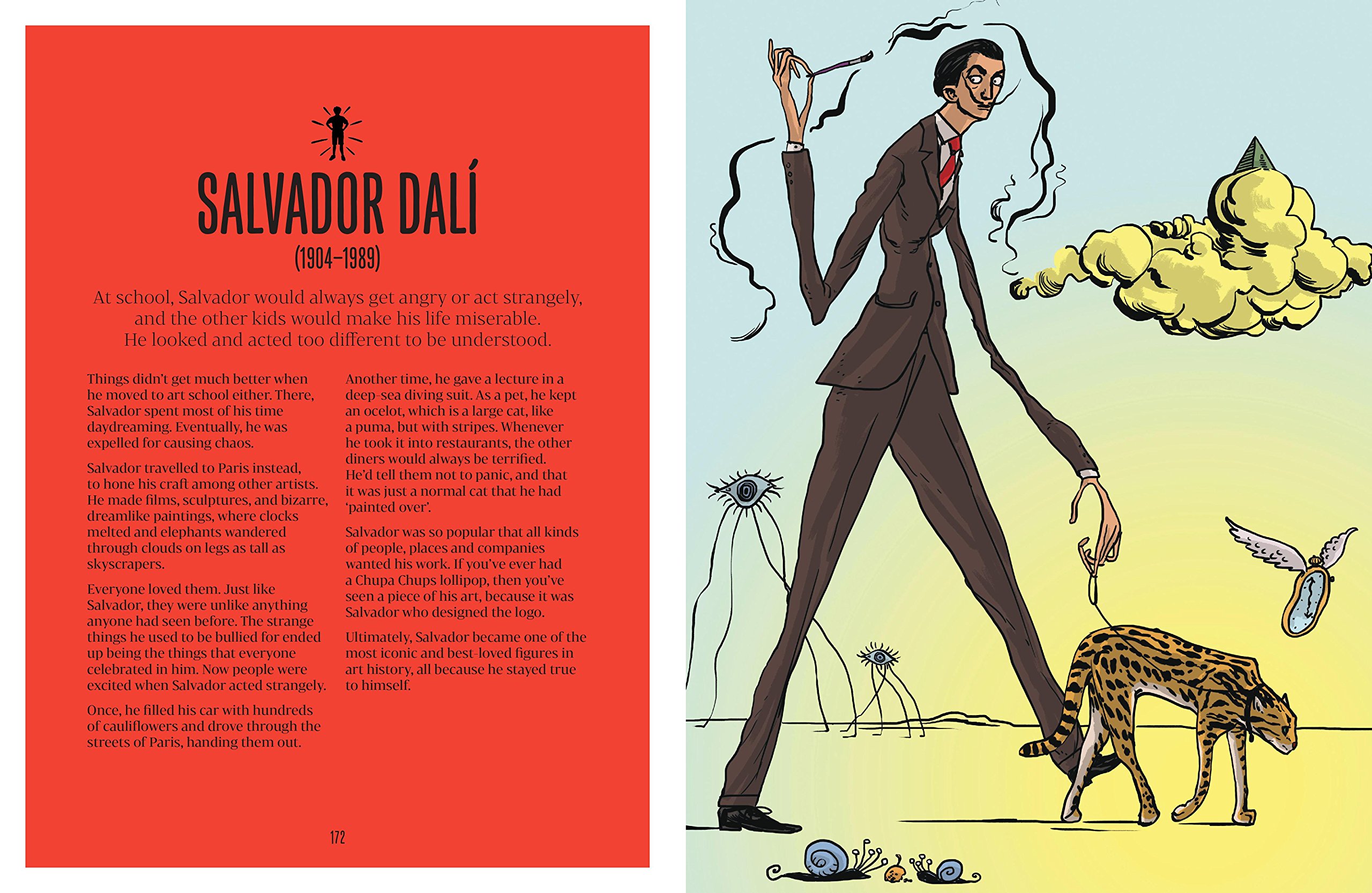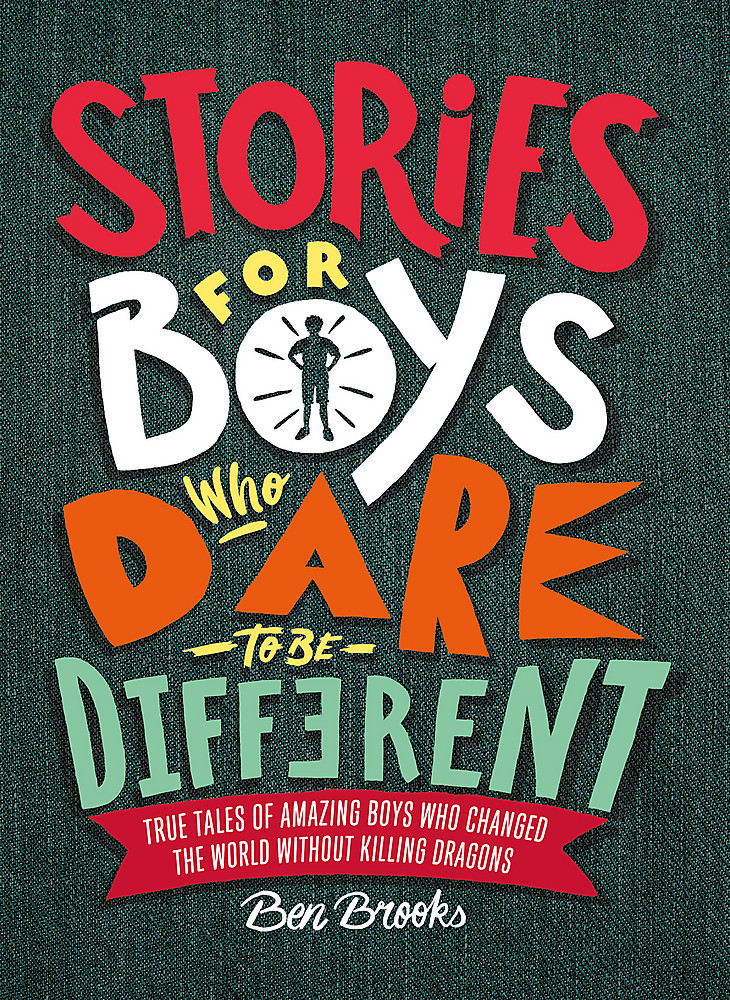Stories for Boys Who Dare To Be Different (Quercus) is the latest in the worldwide publishing phenomenon that started with Good Night Stories for Rebel Girls. Here’s editor Jane Arthur’s take on the book and the wider trend.

Finally! What the world has been waiting for, in the midst of a torrent of books about girls and ladies of every type – it’s a book about men!
I’m being facetious, though there have been loud requests for a book like Stories for Boys Who Dare To Be Different (Quercus), which presents alternative role models to boys instead of the traditional ‘macho’ ones. This is – eventually – a review of this latest release in the stream of books for kids about inspirational people. But first, I have to clear my throat about the context that lead to its existence. Ahem…
I have conflicting feelings about the trend for these books. I get why they exist and what they’re trying to do – be inspirational, representative, aspirational, redress stereotypes, etc, etc – but I can’t shake the niggle that they’re also exclusionary. This new book is terrific at showing there are many different ways to be a boy (or a man, or male) – that success can be anything from making computers to overcoming bullies. What’s not to love!? However… Here’s the big but. What about girls.
I know I KNOW this book was made as a direct response to the Rebel Girls phenomenon, and there’ll be thousands of happy parents and librarians around the world now. I’ve heard their cries for something to balance out all the powerful female role models. However. I’m more of the school of thought I like to call, ‘Won’t Someone Think Of the Boys!?’
You cannot deny that the world – including the books in the world – has been waaaaaaaaaaay more focussed throughout history on opportunities for and representations of male humans than of female humans. The whole reason the Rebel Girls et al books exist is to do some heavy-handed rebalancing. Some affirmative action. Boys are not the point! If boys feel left out because of the ‘For Girls’ bit in the title – let them! Let them feel less-than-most-important for a change. Let them see girls as perhaps, maybe, what-if … more important, for this moment. Or just as important, even.
My other issue with these books is that they’ve now set up a Girls vs Boys power struggle – without much room for the heaps of kids who don’t identify as either. While trying to be 21st-century cool about what gender means, they’re missing such a big trick here. I really hope that the next wave of inspirational publishing can cover all humans. Maybe a better way to cover gender – for the next wave – is not to discuss how each gender could or should be, but to blow ‘gender’ open, realise there actually aren’t just two sitting in opposition to one another, and talk about humans in all their sliding-scale-of-identity glory.
The review starts here.

Stories for Boys Who Dare To Be Different dedicates two pages each to 100 men (and boys, which is cool) who have helped the world in some way. As the book’s subtitle says, they ‘changed the world without killing dragons’. And despite my misgivings above, I do heartily acknowledge this book’s attempts to address male mental health issues related to living up to unrealistic ‘macho’ ideals.
One page is a full-colour, quite zany portrait full of symbols and jokes, and the facing page is a short bio – much the same formula as the Rebel Girls books and New Zealand’s Go Girl, except here there’s only one illustrator used for the whole book, Quinton Winter. This works nicely, though, as his portraits are varied enough not to become formulaic or tired.
I am most impressed by the text of the book, written by Ben Brooks. Its tone is warm and affirming, and also a tad subversive – like the final paragraph on Frederick Douglass: ‘Thanks in part to the work of Frederick, all slaves were declared free in 1865. Black people in America have been fighting for equality ever since.’ That last sentence! As the youngsters on the internet say: yassssssss queen.
I’m also impressed by the range of people they’ve included. There’s Confucius and Frank Ocean, Louis Braille and Louis Armstrong, an amputee athlete and a ballet dancer, a dedicated dad and a fashion designer, poets, actors, political activists, scientists. And Taika Waititi. There are examples from around the world and throughout history; only about a quarter of them are straight, white, able-bodied Americans or Brits, which leaves a nice amount of space for everyone else, especially considering this is an English-language text. Most of the examples are 20th or 21st century, but there are a handful from earlier, including Galileo, Linnaeus and a 12th century boy-King of Jerusalem.

All up, the book offers a nice explosion of what the notion of ‘success’ needs to look like. It’s not just fame, money or power here – it’s kindness, too, or altruism. There’s a nice feminist thread woven through the book which does its best to acknowledge the importance of respecting women and their work.
My biggest criticism of the book itself is in its presentation of what ‘male’ really means. Not what ‘male’ does; that’s very nicely challenged from the book’s first pages. But I’m a bit surprised by the deadnaming of the trans men in the book, as well as the underlying rhetoric that implies to be a ‘real’ man means making sure your body matches your sense of identity; this struck me as quite a disappointingly old-fashioned and narrow way of discussing gender. For me, it made what could have been a powerful educating – or affirming – moment into more of a missed opportunity. I’d love to hear the trans community’s thoughts, though, and I hope the writer of the book did.
Weighing everything up, I do recommend you buy or borrow the book and read it with your child – whatever gender they are or aren’t – alongside books about other kinds of humans. Discuss what these books contain. Ask questions, answer questions, hop on the old Google to learn more. Your household and the world will be better for it. <3


Jane Arthur
Jane Arthur co-owns and manages GOOD BOOKS, a small independent bookshop in Pōneke Wellington. She twice judged the NZ Book Awards for Children and Young Adults, in 2019 and 2020. Her debut poetry collection, Craven (VUP) won the Jessie Mackay Prize for best first book of poetry at the 2020 Ockham NZ Book Awards, and her second collection, Calamities!(THWUP) was longlisted for the Mary and Peter Biggs Award for Poetry in the 2024 Ockham Awards. Her debut children's book, Brown Bird(PRH) is due for release in May 2024. Jane is also co-founder of The Sapling.



